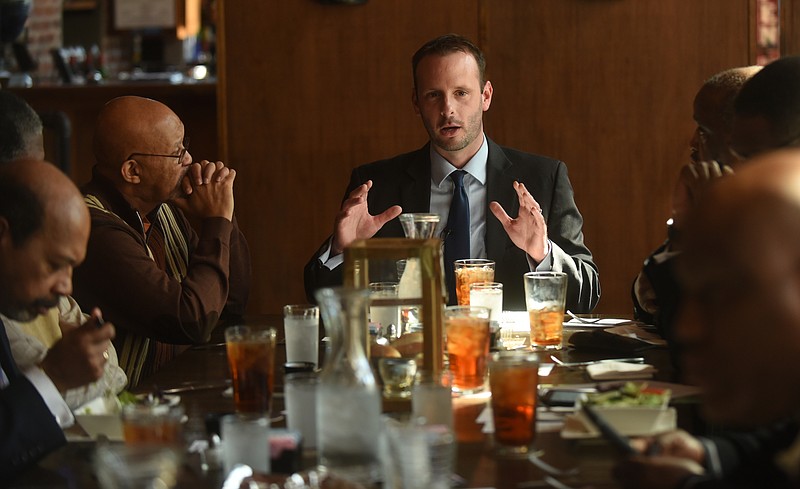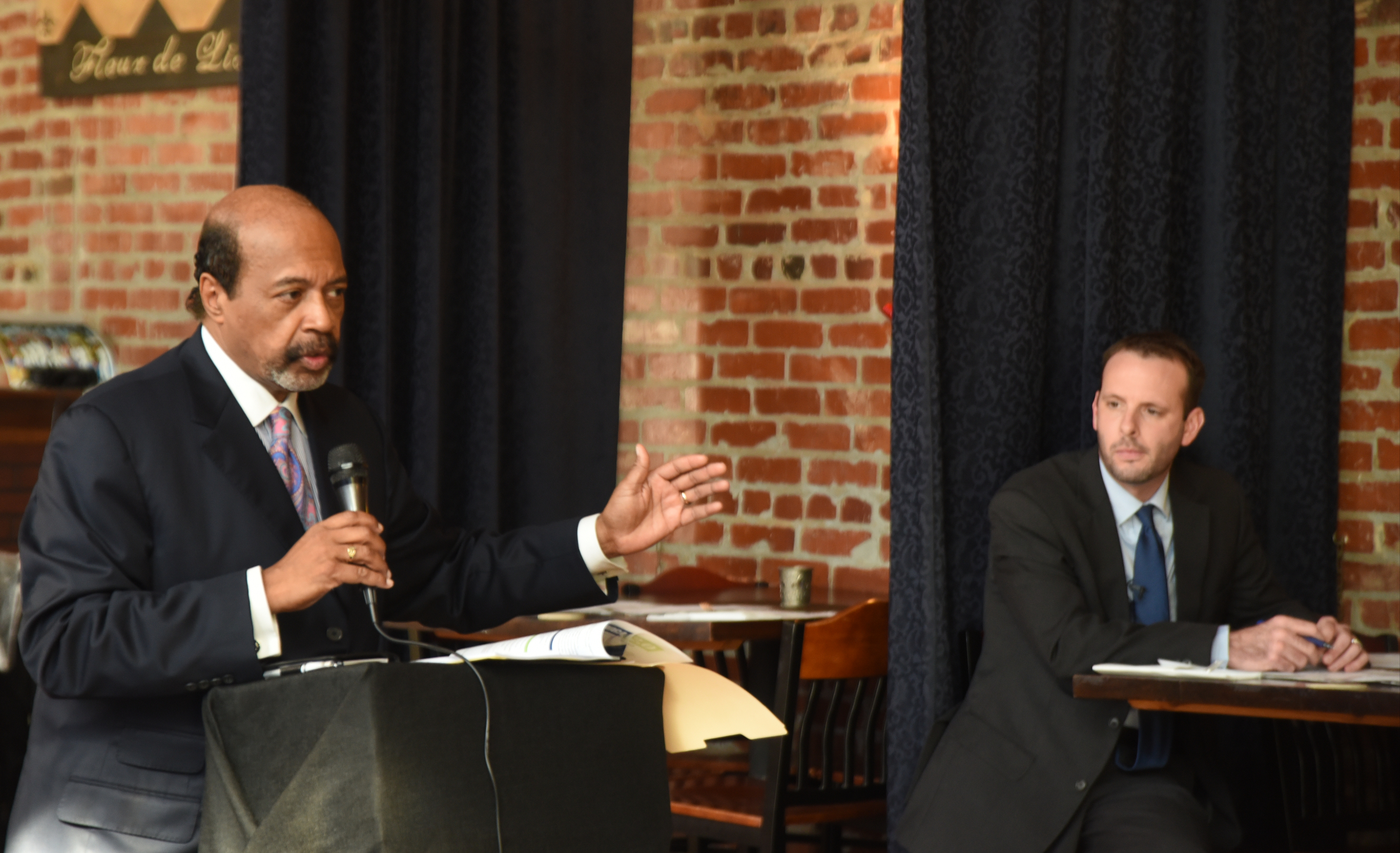Leaders of Chattanooga 2.0 aren't looking for a magic bullet or a quick fix to improve Hamilton County's public schools.
The coalition of businesses, educators and foundations knows transforming the county's schools will take time and widespread support, and that is why during the next 100 days they are working to galvanize the community to help address the problems facing public education as stated in the Chattanooga 2.0 report.
The report, released in December, provides a sobering picture of the state of education in the county, showing that 65 percent of Hamilton County Schools graduates fail to earn any education past high school, leaving them unqualified for the majority of jobs coming to the area.
Warren Logan, president of the Urban League of Greater Chattanooga, explained the report to a handful of community pastors Thursday.
"On one end of the spectrum, we have this enormous influx of jobs," Logan said. "On the other end, we have schools that are failing."
Logan said the report outlines the problems facing their congregations, and he urged the pastors to be involved in helping the community find solutions.
During this 100-day planning period, people across Chattanooga are working in groups to identify strategies the community can rally around and implement in the months to come.
"So far, people have been excited to find ways to engage," said Jared Bigham, director of Chattanooga 2.0. "Now we have more concrete ways for people to have an authentic voice and get to work helping students."
Three groups have been organized to tackle different aspects of the problems stated in the report: early childhood/school readiness, public K-12 education and workforce development.
Lesley Scearce, CEO of the United Way of Greater Chattanooga, is working with the group looking to strengthen early childhood education. She hopes that within the next 100 days the group will develop three to five bold strategies to help prepare kids to thrive in school.
"In some areas, we may need to make dramatic changes," Scearce said. "And some places, we may just need to revamp what we're doing."
A diverse group of educators, pre-K providers, principals, education advocates and foundation members met Thursday morning to brainstorm ideas for how the community can help parents provide a strong foundation for children starting at birth.
Maeghan Jones, president of the Community Foundation, said the group is considering a variety of strategies ranging from adding more quality pre-K seats to developing tools and resources to help parents raise their little ones.
Hamilton County Schools Assistant Superintendents Robert Sharp and Keri Randolph are leading the group focused on K-12 education, and they were busy this week presenting the Chattanooga 2.0 report to the school district's principals and assistant principals.
Randolph said it has been beneficial to present the headlines of the report to school administrators and engage them in initial conversations on how to improve schools and prepare students for jobs after graduation.
Sharp said he hopes Chattanooga 2.0 will encourage a partnership between the school system and the community.
"We're making a commitment to meaningful, open dialogue," Sharp said.
Bill Kilbride, president of the Chattanooga Area Chamber of Commerce, said the group working on workforce development is focusing on both short- and long-term solutions to address the economy's demand for a more qualified workforce, as only 35 percent of high school graduates earn the post-secondary credentials needed to hold 83 percent of the county's jobs that pay more than $35,000 a year.
"We have jobs today and high school seniors that are going to graduate in about three months," Kilbride said. "There is an opportunity we can't miss in front of us right now."
Kilbride said his team, made up of business leaders, educators and a variety of tradesmen, wants to help connect students to those jobs and think of innovative ways to start preparing high school students to hold the glut of jobs available here.
He said the group is brainstorming ideas to make post-secondary programs more flexible for students and applicable to the jobs in the county.
Over the next 100 days, Kilbride said, he wants everyone to ask the question: how do we become the best city together?
Contact staff writer Kendi Anderson at kendi.anderson@timesfree press.com or 423-757-6592. Follow on twitter @kendi_and.

